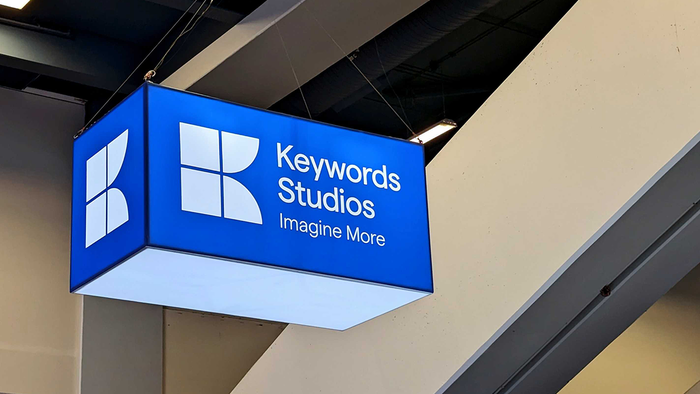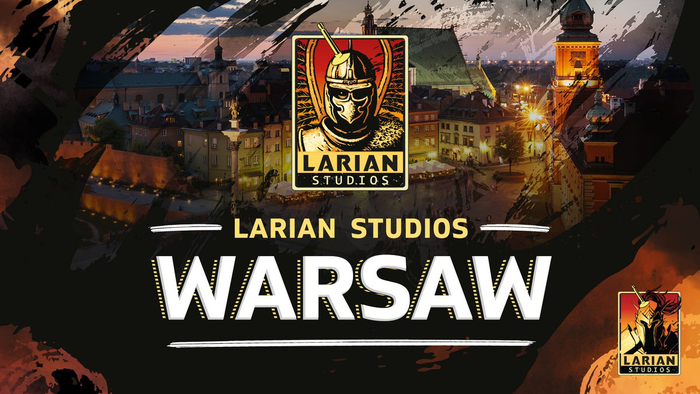Interview: A Rocket Bear Takes Off - Vostrov On Going Full-Time Indie
Alex Vostrov has gone from making games in his spare time to quitting his day job to focus entirely on Rocket Bear Games -- he talks to Gamasutra about the transition and his first commercial game, Infested Planet.

Alex Vostrov is the one man band behind Rocket Bear Games, previously known as Indiebird. His work has been featured on sister site IndieGames.com's blog numerous times, and with good reason -- his games tend to be quirky and interesting, as well as solid fun. Some of Vostrov's recent notable releases include the likes of Attack of the Paper Zombies, Pandora's Gearbox and Swarm, and he recently made the decision to quit his day job and become a full-time indie developer. His first commercial release, Infested Planet, builds on the concept originally found in Attack of the Paper Zombies, and will be released later this year. In this interview for Gamasutra, Alex talks to us about his decision to go full-time developer, his gaming industry heroes and influences, and what we can expect from Infested Planet. Who are you and what do you do? Alex Vostrov: My name is Alex Vostrov and I'm from Vancouver, Canada. When I'm not plotting world domination, I make independent games of various shapes and sizes. You recently quit your day job to go full indie developer. What prompted you to make this move? AV: Would you believe that it was a YouTube video? I'm serious. It was a recording of Gary Vaynerchuk hopping around on stage like an excited squirrel on crack. He talks a lot about web 2.0 stuff and making a living from your passion. Before that moment, creating games full-time was a crazy dream. Then I started thinking about ways to make the dream happen. One thing led to another and here I am. Does the idea of living off your own work worry you at all? What would you say to another indie developer considering the same path? AV: One part of me is scared out of its mind. I've heard the doom and gloom statistics about staying afloat -- no rose-colored glasses here. What changed my mind was the following thought. I knew that if I didn't give it a shot, I would regret it for the rest of my life. Some people try to climb Everest; I'm trying to start an indie game studio. As for advice to other developers, I'd say two things. One, be really sure that this is what you want to do. You won't become Bill Gates making games. If I wanted to get rich, I'd keep writing financial software. Two, have a war chest to get you through the hard times. How long would you last if the money stopped coming in?  Your past work includes the likes of Swarm, Pandora's Gearbox and the wonderful Attack of the Paper Zombies. Is there anyone in particular that you take inspiration from? AV: My game design hero turned his back on the game industry almost two decades ago. Here's a bit of trivia: GDC started in his living room. Some of the games that he created in the 80s are still more innovative than those made today. If you don't know who I'm talking about, you should look up Chris Crawford. I like to joke that he's the best game designer you've never heard of. In general, I'm greatly inspired by the spirit of 80s game design. Here is a time when the game world was still young and dragons dwelled in the forest depths. The game designers of that decade laid the foundations for almost every genre that's around today. In some ways, it was a similar time to the indie explosion that we're experiencing now. Infested Planet will be your first commercial product, and will build on the concept from Attack of the Paper Zombies. What can we expect come fall 2010? AV: I like to think about Attack of the Paper Zombies as the baby prototype for Infested Planet. Remember Chris Hecker's "Please Finish Your Game" GDC rant? I see Infested Planet as being the final and fullest expression of ideas that I started exploring in Attack of the Paper Zombies. One feature I'm very excited about is the new campaign mode. It will add a set of missions, as you'd expect, but there's something more. One of Attack of the Paper Zombies' strengths was how replayable the basic game was. What I'd like to do is to mix in random missions so that you're playing a quasi-dynamic campaign. It's been tried before, and a lot of developers have gotten it wrong. I have a couple of ideas of how to defeat the problems, though. Is the idea of charging for your work daunting, given that your games up to now have all been freeware? AV: I regret that there's going to be more of a barrier between me and my audience now. On the other hand, that gives me the ability to make much better games. I'd rather make great games for a smaller audience than so-so games for everyone. Of course, there's a third option to the dilemma. I've been eying the Flash game space for some time now. I like the fact that people can release free games and still make a living.
Your past work includes the likes of Swarm, Pandora's Gearbox and the wonderful Attack of the Paper Zombies. Is there anyone in particular that you take inspiration from? AV: My game design hero turned his back on the game industry almost two decades ago. Here's a bit of trivia: GDC started in his living room. Some of the games that he created in the 80s are still more innovative than those made today. If you don't know who I'm talking about, you should look up Chris Crawford. I like to joke that he's the best game designer you've never heard of. In general, I'm greatly inspired by the spirit of 80s game design. Here is a time when the game world was still young and dragons dwelled in the forest depths. The game designers of that decade laid the foundations for almost every genre that's around today. In some ways, it was a similar time to the indie explosion that we're experiencing now. Infested Planet will be your first commercial product, and will build on the concept from Attack of the Paper Zombies. What can we expect come fall 2010? AV: I like to think about Attack of the Paper Zombies as the baby prototype for Infested Planet. Remember Chris Hecker's "Please Finish Your Game" GDC rant? I see Infested Planet as being the final and fullest expression of ideas that I started exploring in Attack of the Paper Zombies. One feature I'm very excited about is the new campaign mode. It will add a set of missions, as you'd expect, but there's something more. One of Attack of the Paper Zombies' strengths was how replayable the basic game was. What I'd like to do is to mix in random missions so that you're playing a quasi-dynamic campaign. It's been tried before, and a lot of developers have gotten it wrong. I have a couple of ideas of how to defeat the problems, though. Is the idea of charging for your work daunting, given that your games up to now have all been freeware? AV: I regret that there's going to be more of a barrier between me and my audience now. On the other hand, that gives me the ability to make much better games. I'd rather make great games for a smaller audience than so-so games for everyone. Of course, there's a third option to the dilemma. I've been eying the Flash game space for some time now. I like the fact that people can release free games and still make a living.  You say on your blog that you work on your game around 12 hours every day. How do you manage to stay focused throughout the day? AV: Well's that a bit of an overestimate. I try to work about 12 hours, but a lot of the time, things intrude on the schedule. I try to be fairly organized. I write out task lists each evening for the following day. One thing that helps is going for a run in the middle of the day. All of that is details, though. What drives me is the idea that if I work harder, I can implement features that are on the cutting floor right now. You always have to balance creativity with reality when making games. Spending more time on the game allows me to indulge my creative side. Is your plan to work on Infested Planet full-time, or do you have other games and concepts going at the same time? AV: Infested Planet occupies 100 percent of my attention right now. Sometimes that's a pity, because I miss interesting competitions like the ones TIGSource holds. There are a lot of games that I want to create, like all designers, but most of them aren't even in prototype stage yet. That's just a reality of wearing many hats. It's hard enough to ship one good game. Doing several games at once would be almost impossible.
You say on your blog that you work on your game around 12 hours every day. How do you manage to stay focused throughout the day? AV: Well's that a bit of an overestimate. I try to work about 12 hours, but a lot of the time, things intrude on the schedule. I try to be fairly organized. I write out task lists each evening for the following day. One thing that helps is going for a run in the middle of the day. All of that is details, though. What drives me is the idea that if I work harder, I can implement features that are on the cutting floor right now. You always have to balance creativity with reality when making games. Spending more time on the game allows me to indulge my creative side. Is your plan to work on Infested Planet full-time, or do you have other games and concepts going at the same time? AV: Infested Planet occupies 100 percent of my attention right now. Sometimes that's a pity, because I miss interesting competitions like the ones TIGSource holds. There are a lot of games that I want to create, like all designers, but most of them aren't even in prototype stage yet. That's just a reality of wearing many hats. It's hard enough to ship one good game. Doing several games at once would be almost impossible.
About the Author(s)
You May Also Like













